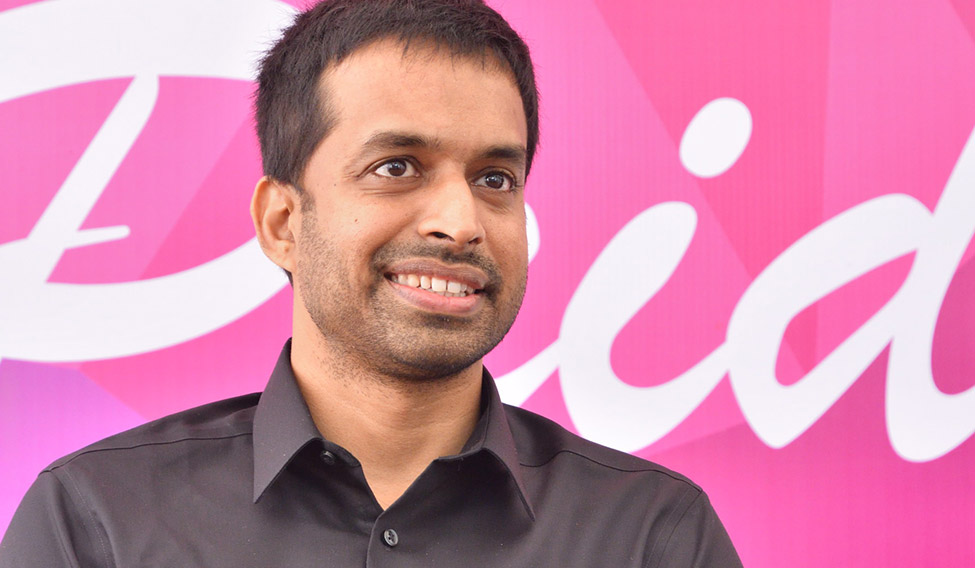How do you look at your journey with the current crop of players?
I am very satisfied about where we are [now]. It has been a huge jump. It is very scary to think about what we did, the way we did it, the kind of effort we put in, the number of hours and the kind of risks we took. It was not sane in a lot of ways. We didn’t know much—[coaches] Anil [Kumar], Rajendra [Kumar] and I—we were new to this, we hardly had any support. We would do multi-training for eight hours at a stretch, day in and day out. We would travel at night [for tournaments], reach Hyderabad late and return [to the court] early in the morning. A lot of things [were achieved] by sheer energy. It was crazy.
Did you feel that you had to prove yourself as a coach first before getting the support system and structures in place?
There were struggles on all fronts—financial, political, legal and bureaucratic. Nothing was organised as such. We had to push our way through to the next stage. It was not sane to do it. But the kids had potential, energy and motivation, and that is what pushed me. My reputation was at stake.
How satisfied are you with the boys’ results?
Malaysia, Singapore, Indonesia and Australia; it doesn’t get better than this in terms of competition. Obviously, this is what you would want when you look at their performance. Having said that, I think world badminton is very competitive. You can’t relax. You can never say “I have figured it out”. But, we are in a good space.
The association is looking to decentralise coaching. Some see it as clipping your wings.
Whenever athletes go up, coaching and support system staff have to go up. The tournament structure, government policies and incentives also have to go up. We have moved the players up by sheer energy. [But] the coaches, the support staff, the tournament structures and supporting policy are not ready. What we have done till now is not sustainable. We are not prepared for this success. We have to get people from outside to coach. You have the same tournament structure that was there 25 years ago. [For instance,] the structure for the junior programme is still the same, but the number of players have gone up from about 50 to more than 1,600. You hardly produce any coaches. I think I am to blame for it, in a lot of ways, but I think there was no other way of doing this.
Why do you say you had to prove yourself?
When we started, the notion was that we couldn’t beat the Chinese. So, you prove [otherwise] with one girl. Then they say you have to do so with more. Then, the moment you do that, [they ask] “Why only girls? Prove it with the men”. Now, when you prove it with the men, they say “Why not doubles?” So, there is no end to this. I am happy that we have at least taken some steps.
What has led to the recent consistency in performance?
The beauty with our system is we have four to five players. Sai Praneeth has done well, so has Srikanth. [But] if not them, Prannoy has [done well]. Sameer Verma is there, too. We have got multiple players playing higher rounds of the tournaments. So, though the players are not consistent as such, badminton is consistent. Boy or girl, someone is giving results.
The good part is that, at 24, Prannoy, SK, Sai, all are mature now. They have had their ups and downs, and they understand their bodies. Now they are settling into a groove. Then you have players like [Parupalli] Kashyap and Ajay Jayaram, [who are a] little on the older side, but when you look at Lee Chong Wei and Lin Dan playing till 33-34, I believe there is hope for us there as well. So, altogether, we are a formidable force.
How do you keep in touch with players who train outside Hyderabad, for example Ajay and Saina Nehwal?
There was this talk about me having too much authority. Where is the authority? I only have authority because these kids want to listen to me. What has the system done to ensure results with them? Where is the system, responsibility and monitoring?
We are a country led by either an administrator, bureaucrat, federation or superstar. We are not system-driven, scientifically-driven or led by a coach. People who have limited, periodic stakes in the system—the bureaucrat, the minister and the federation official—control the decisions. Or you want to appease a star player who dictates terms. I am not saying that you have to listen to me or to anyone. Each one needs to be assigned a role.







